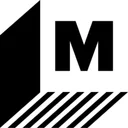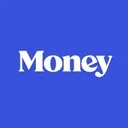Are Money Market Accounts FDIC Insured?
Money market accounts offered by banks are insured through the FDIC.

Many, or all, of the products featured on this page are from our advertising partners who compensate us when you take certain actions on our website or click to take an action on their website. However, this does not influence our evaluations. Our opinions are our own. Here is a list of our partners and here's how we make money.
On This Page
Money market accounts offered by banks are insured through the Federal Deposit Insurance Corp. This means if your bank fails, your money is protected, up to at least $250,000.
Failures are rare, but the high-profile bank collapses of 2023 were good reminders of why FDIC insurance matters. These special types of savings accounts — also called MMAs — can come with features like check-writing and debit cards. But they shouldn't be confused with money market mutual funds, which are investments that are not federally insured. Read on to learn more about how your money is covered, and how MMAs compare to other ways to save.
Are money market accounts federally insured?
Yes, money market accounts are FDIC insured as long as the deposits are with a bank. MMAs at credit unions are federally insured through the National Credit Union Administration. In both cases, your money is protected up to $250,000 per owner, per institution and per category. (Examples of categories are joint accounts and single accounts.) Money market mutual funds, on the other hand, are considered short-term, low-risk investments and are typically offered by brokerages. So they are not covered by the FDIC or NCUA.
High-yield savings accounts and CDs are also federally insured and can be high-rate alternatives to MMAs.
What if my bank fails?
Bank failures are not common. But if your bank does go out of business, FDIC insurance guarantees your money, up to its FDIC limits. In March 2023, Silicon Valley Bank, based in Santa Clara, California, was the first U.S. bank to fail since October 2020. In this case, it was one of the larger bank collapses on record, and the Treasury, Federal Reserve and FDIC said in a joint statement that all depositors would be fully protected, even beyond FDIC insurance limits. There was a similar outcome with First Republic Bank, another large bank that collapsed in May 2023.
Though these are cases where customer deposits were protected beyond FDIC limits, the best way to make sure your money is safe is to keep your balances within the insured amount. This goes for any bank account, including those that are online.

» Need more funds insured? Learn how to insure over $250K
How safe are online money market accounts?
Online MMAs are just as safe as those opened at traditional banks. Online providers might have names you don’t recognize, but they are likely associated with recognizable banks or credit unions that offer coverage. For example, ZYNLO Bank is online-only, but it’s also part of PeoplesBank, which is based in Holyoke, Massachusetts and has physical branches in the area. ZYNLO money market accounts are FDIC-insured through PeoplesBank. More about safety: Just like traditional banks, online banks use fraud prevention measures to keep your money safe. These measures typically include multi-factor authentication, encryption technology and fraud hotlines for you to call and quickly report any suspicious account activity. (Read more about how you can work with your bank to boost online banking security).
Getting the most out of your money market accounts
Confirm your account is federally insured. Before opening an MMA, check your bank or credit union’s website for “Member FDIC” wording (for banks) or “federally insured by NCUA” (for credit unions). This way, you’ll know that your deposits will be covered. If you aren’t sure, check with the institution.
Know how to reach customer support. Whether your MMA is with a traditional or online bank, you’ll want to be able to reach customer service by phone, online or mobile app. Know whether support is available 24 hours a day, seven days a week or only within certain hours. Also, keep in mind that online accounts are best for customers who prefer not to visit bank branches for face-to-face customer service.
Take advantage of debit cards and checks. Some MMAs offer debit cards and checks, which separate them from savings accounts that don’t typically offer those conveniences. Having a debit card or check can make it easier to access your money. However, you may be limited to only a few transactions per month. If you’re looking for an option where you can make more than, say, six transactions per month, consider opening a checking account. It usually doesn't earn as much interest as an MMA, but it's a good option for everyday spending.
Eliminate monthly fees. If an MMA has a monthly fee that’s waived when a certain balance is kept, be sure to keep your balance above that minimum so you won’t have to pay a fee. Even better, open an MMA that has no fees or minimum deposit requirements.
More about money market accounts
How to choose between a money market account and a standard savings account.
How to choose between a money market account and a certificate of deposit.
The best money market mutual funds








